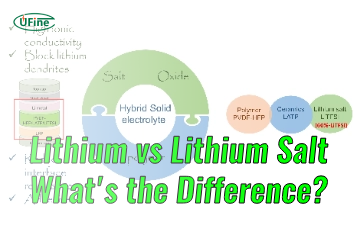
Learn About Alarm Clock Batteries
Part 1. Principle of alarm clock battery
Alarm clock batteries operate on the principle of converting chemical energy into electrical energy. Most clocks use a DC (direct current) power source, typically provided by batteries. When the alarm is activated, the electrical circuit is completed, and the flow of electricity powers the clock’s mechanism, allowing it to function accurately.
Part 2. Types of clock batteries
- Alkaline Batteries: Alkaline batteries, such as AA or AAA, are commonly used in alarm clocks. They offer a good balance between cost, availability, and performance. Alkaline batteries provide reliable power and are widely accessible.)
- Rechargeable Batteries: Rechargeable batteries, like nickel-metal hydride (NiMH) or lithium-ion (Li-ion) batteries, are an eco-friendly option. They can be recharged multiple times, reducing waste and long-term costs. However, they may have a slightly lower voltage compared to alkaline batteries.
- Lithium Batteries: Lithium batteries are gaining popularity for alarm clocks due to their superior performance. They offer a higher energy density, longer lifespan, and better performance in extreme temperature conditions. Lithium batteries provide a reliable and long-lasting power source for alarm clocks.
Lithium Battery VS Alkaline Battery: How to Choose?
Part 3. Comparison of advantages and disadvantages
Alkaline Batteries
- Advantages: Widely available, affordable, good performance.
- Disadvantages: Not rechargeable, shorter lifespan compared to lithium batteries.
Rechargeable Batteries
- Advantages: Eco-friendly, cost-effective in the long run.
- Disadvantages: Lower voltage, may require more frequent recharging.
Lithium Batteries
- Advantages: High energy density, longer lifespan, better performance in extreme temperatures.
- Disadvantages: Relatively higher cost compared to alkaline batteries.
Part 4. Common alarm clock battery sizes
Alarm clocks come in various shapes and sizes, and so do their batteries. The most commonly used clock battery sizes include:
- AA Batteries: Popular in many standard alarm clocks, AA batteries offer a balance of longevity and affordability.
- AAA Batteries: These are often used in smaller, compact alarm clocks due to their slim design.
- CR2032 Coin Cell Batteries: Found in compact and digital alarm clocks, these lithium coin batteries are lightweight and have a long lifespan.
- 9V Batteries: Typically used in older or more robust alarm clock models.
- Lithium batteries: Usually have no fixed size.
At Ufine Battery, we provide customizable lithium batteries in various sizes to match your device’s specific requirements, ensuring compatibility and superior performance.
Part 5. Battery life of alarm clocks
The battery life of an alarm clock depends on various factors, including the type of battery used, the clock’s power consumption, and the frequency of use. Alkaline batteries typically last several months to a year, depending on usage. Rechargeable batteries may require more frequent recharging, but their lifespan can extend for years. Lithium batteries offer an even longer lifespan, often lasting several years before needing replacement.
Choosing the right battery for your alarm clock is crucial for ensuring reliable timekeeping and avoiding any unwanted disruptions to your daily routine. While alkaline batteries are widely used, rechargeable batteries offer a sustainable option. However, for optimal performance and longevity, lithium batteries are an excellent choice. With their high energy density and extended lifespan, lithium batteries provide a reliable power source for alarm clocks.
As a professional lithium battery factory, Ufine has successfully developed and produced thousands of conventional batteries, lithium iron phosphate batteries, ultra-thin special-shaped batteries, low-temperature batteries and 18650 batteries. These batteries have high energy density, high working voltage and small size. , lightweight, long service life, small self-discharge, safety and environmental protection, etc. Ufine’s lithium batteries are widely used in mobile phones, mobile digital products, notebook computers, energy storage, power tools, transportation, medical, aerospace and other fields.
Part 6. Why choose Ufine Battery for your clock battery needs?
Ufine Battery is a trusted name in the custom lithium battery industry, known for delivering reliable and high-performance batteries. For alarm clocks, we offer:
- Custom Solutions: Tailor-made batteries to suit unique clock designs and power requirements.
- Quality Assurance: All our products are tested for durability and performance.
- Global Reach: As a well-known Chinese manufacturer, we provide batteries to clients worldwide.
Contact us today to explore our range of clock batteries and learn how we can provide the perfect power solution for your alarm clocks!
High Energy Density
It stores large amounts of energy in a smaller and lighter package
Longer Cycle Life
Withstands extensive charge and discharge cycles
Low Self-Discharge
Maintains power longer when not in use
Safety
Minimizes the risk of accidents and ensures safe operation
More Information About Alarm Clock Battery
-
How do I know which battery size my alarm clock needs?
-
What happens if I leave a dead battery in my alarm clock?
-
Why does my clock battery drain so quickly?
-
Are lithium batteries better than alkaline for alarm clocks?
-
How do I safely dispose of used clock batteries?
-
Do alarm clocks come with pre-installed batteries?
-
How often should I replace the battery in my alarm clock?
Latest Blogs
About Lithium Battery Industry News

How to Choose the Right Electric Fence Battery?
Choosing the right electric fence battery is key to security. This guide helps you pick a reliable farm, garden, or animal power source.
2025/04/16 Ufine

What Are Lithium Pouch Cells?
Explore how lithium pouch cells work, their structure, advantages, and uses. Learn from a trusted supplier like Ufine Battery for custom lithium solutions.
2025/04/16 Ufine

The Evolution of Ring Battery Pack Technology in Lithium Battery Manufacturing
Ring battery packs are reshaping lithium battery tech. Discover their evolution, key uses, and why they matter for the future of energy storage.
2025/04/16 Ufine

Lithium vs Lithium Salt: What’s the Difference?
Lithium is a pure metal, while lithium salts are stable battery compounds. Learn their key roles and differences in battery manufacturing.
2025/04/16 Ufine

What You Need to Know About AA 3.6V Lithium Battery
Learn all about AA 3.6V lithium batteries—voltage, size, capacity, uses, and the best replacements. Discover why they’re powerful, and highly reliable.
2025/04/15 Ufine

What Are Lithium Salts and Why They Matter in Battery Electrolytes
Lithium salts in electrolytes are key to battery performance, powering everything from phones to EVs and shaping the future of clean energy.
2025/04/15 Ufine








